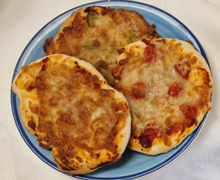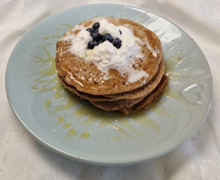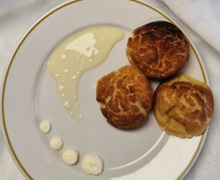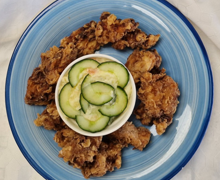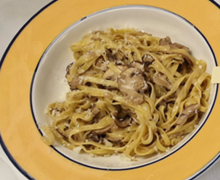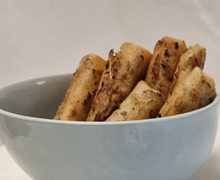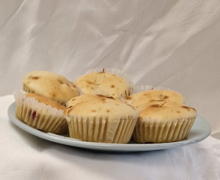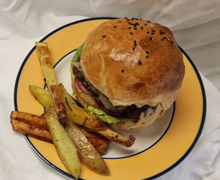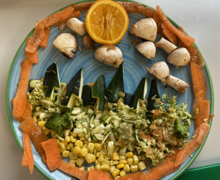- Home
- Secondary
- Subject Information
Food Preparation and Nutrition
BackWelcome to the Food Preparation and Nutrition department at Tabor Academy.
We are proud to offer this subject in both key Stage 3 and Key Stage 4.
The aim and objectives of the Food preparation and Nutrition Department relate directly to those of the school and to the requirements of The National Curriculum. We see this as an area of practical and creative activity that aims to prepare young people for life in a changing society.
We feel that the modern approach to teaching this subject should emphasise areas such as: nutrition and health, Food science, Food safety, Food choice and Food provenance.
We aim and endeavour to excite and challenge pupils at Tabor Academy both in lessons and extra-curricular time.
The practical applications of science, food preparation and cooking techniques are combined with understanding of how food is contained and used to help the body's development. The wider influence of our environment, social and moral choices are naturally woven into the teaching and learning in the classroom. We encourage students to explore a range of food and ingredients that reflect the recommended guidelines for a healthy diet and to develop skills in the main food commodity groups.
Each course of KS3 Food and Nutrition at Tabor Academy is designed to further improve the students’ theory, knowledge and practical skills, whilst also embedding the Personal, Learning and Thinking Skills such as Team Work, Innovation and Creativity.
Every student studies Food Preparation and Nutrition for 1 hour per hour a week at KS3. The knowledge and skills obtained in KS3 are a perfect foundation for preparation for GCSE and beyond the classroom. A vital life skill that will hold students in good stead in their personal lives post education.
In KS4 every student will have 3 hours a week and this will be split into 1 theory lesson, 1 skills lesson and 1 practical.
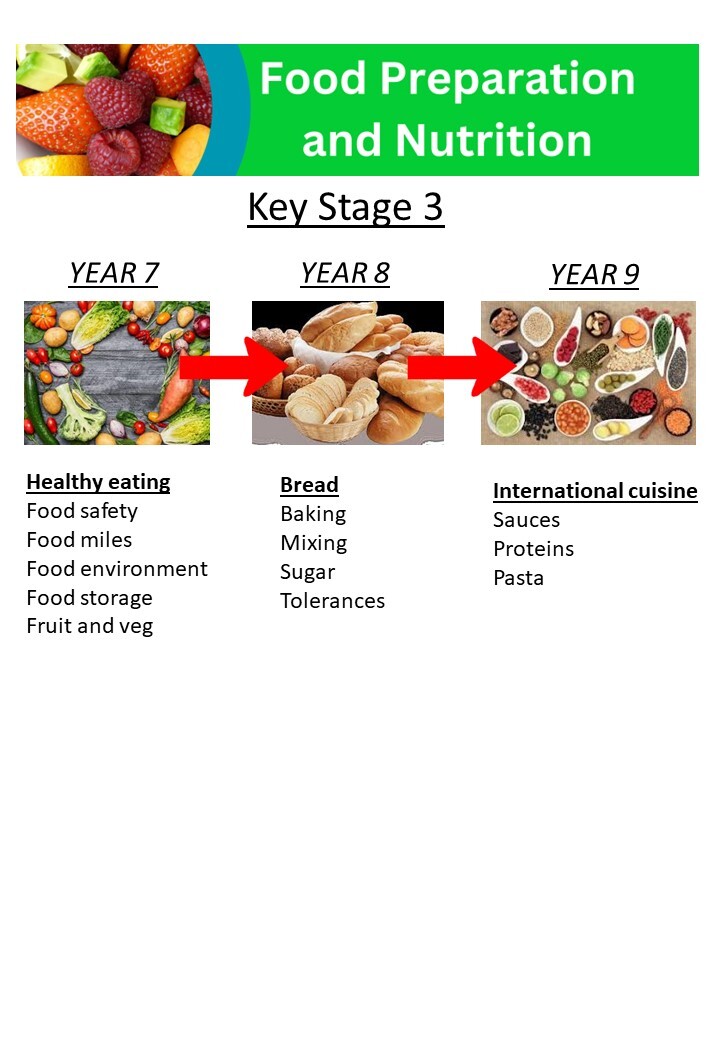
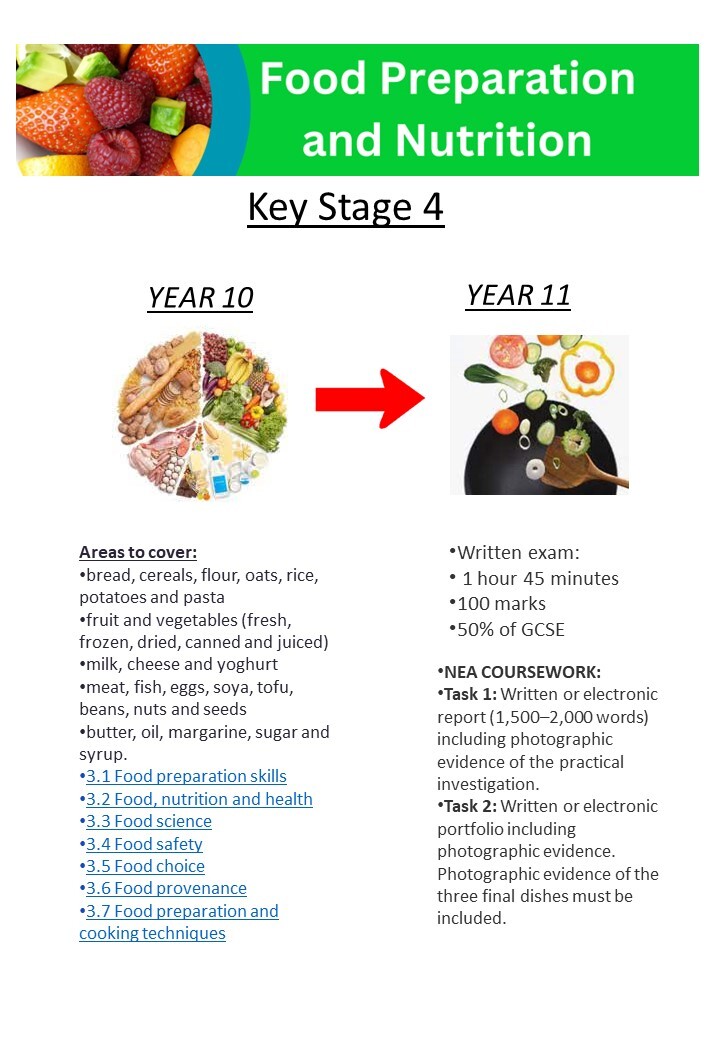
Key Stage 3
Each course of KS3 Food Preparation and Nutrition at Tabor Academy is designed to further improve the students’
practical, theory and making skills, whilst also embedding the Personal, Learning and Thinking Skills such as Team
Work, Innovation and Creativity.
Every student studies Food Preparation and Nutrition for 1 hour a week in a rotation with Design and Technology
(Graphics, Textiles or Resistant Materials).
Food lessons
In lessons, we have high expectations for food education to be part of the School Food Plan. We want to ensure
effective access for all students to develop their learning through skills development and achievement in modern
culinary arts. Our teaching reflects the changes in Government guidelines for healthier eating and the employment
opportunities available to students in the catering and hospitality sector.
We explore food and nutrition linked to a range of healthy recipes. There is an approximate 80% savoury to 20%
sweet recipe split in line with the national curriculum. The pupils study a range of topics including: the Eat Well
Guide, the eight tips for healthy eating, dairy products, carbohydrates, protein, nutrition through the life stages, and
food allergies and intolerances. They will also cook a range of products for which we kindly request students supply
their own ingredients so the dishes can be taken home. Students will be given a schedule of practical lessons with
required ingredients at the start of each half term. This will be in the form of a sticker that will be in their planners at
the start of the term.
Key Stage 4
We offer the following specification: AQA GCSE Food Preparation and Nutrition
- AQA GCSE-food Preparation and Nutrition GCSE Food Preparation and Nutrition specification sets out the knowledge, understanding and skills required to cook and apply the principles of food science, nutrition and healthy eating.
- The majority of the specification should be delivered through preparation and making activities. Students must be able to make the connections between theory and practice to apply their understanding of food and nutrition to practical preparation.
Topics and themes have been grouped to help you teach the specification, but these are not intended as a route
through the specification, you can teach the content in any order.
The topics are:
- Food, nutrition and health
- Food science
- Food safety
- Food choice
- Food provenance.
- The range of food and ingredients studied should reflect the recommended guidelines for a healthy diet based on the main food commodity groups. Food groups include:
- bread, cereals, flour, oats, rice, potatoes and pasta
- fruit and vegetables (fresh, frozen, dried, canned and juiced)
- milk, cheese and yoghurt
- meat, fish, eggs, soya, tofu, beans, nuts and seeds
- butter, oil, margarine, sugar and syrup.
Students will learn the following:
- 3.1 Food preparation skills
- 3.2 Food, nutrition and health
- 3.3 Food science
- 3.4 Food safety
- 3.5 Food choice
Paper 1
What is assessed?
Theoretical knowledge of food preparation and nutrition from Sections 1 to 5.
How it's assessed
- Written exam: 1 hour 45 minutes
- 100 marks
- 50% of GCSE
NEA
What is assessed?
Task 1: Food investigation (30 marks)
Students' understanding of the working characteristics, functional and chemical properties of ingredients.
Practical investigations are a compulsory element of this NEA task.
Task 2: Food preparation assessment (70 marks)
Students knowledge, skills and understanding in relation to the planning, preparation, cooking, presentation of food
and application of nutrition related to the chosen task.
Students will prepare, cook and present a final menu of three dishes within a single period of no more than three
hours, planning in advance how this will be achieved
How it's assessed
Task 1: Written or electronic report (1,500–2,000 words) including photographic evidence of the practical
investigation.
Task 2: Written or electronic portfolio including photographic evidence. Photographic evidence of the three final
dishes must be included
Extra Curricular
We are pleased to offer lots of clubs for Food Preparation and Nutrition, such as after school baking and cooking clubs at lunch time.
We aim to allow students to develop their skills for pleasure in a more relaxed environment.
Parents can help their children to develop an awareness of the role of Design and Technology in development of the
modern world through simple yet effective ways.
- Help your child to see the value of cooking and making in today’s modern world, and the good job opportunities that this line of study can offer.
- Encourage your child’s enjoyment in, and to help them in solving, technological problems.
- Give time and opportunities for your child to discuss or remake their food projects at home and give feedback on the things they make made.
- Encourage your child to complete their homework on time and to the best of their ability.
- To encourage your child to always aim to improve on their previous best performance.

